
Welcome to our 2016 Vote Guide
It is not easy putting together Boulder Weekly’s vote guide. What makes it so difficult is that we take the responsibility of endorsing candidates very seriously. In a year like this wherein the electorate is in near revolt against the establishment of both major parties, it becomes an even trickier proposition.
So here is how we made our decisions. BW’s staff of four editors did its best to conduct as many interviews with candidates as possible, in person, on the phone or via email as a last resort. We weren’t able to get through to everyone but we only missed a few.
We also attended candidate forums and researched the candidate’s websites. In addition, we looked into incumbents past voting records, and to the extent we could, used other information sources to determine things like who’s funding the candidates.
After all that, we sat down in the same room and, with additional input from our publisher, attempted to reach a consensus in order to endorse a candidate in each race. If we couldn’t all agree on whom to endorse, then the majority ruled the day.
It wasn’t easy. And you’ll notice we did not endorse a candidate in every race.
On a personal note, I found this to be a particularly difficult year for me when it came to endorsements. As many of you who regularly read my column know, I have grown weary of a two-party system wherein the parties’ largest donors decide who gets to run, and what backroom deals get cut and for whose benefit. I don’t have to tell you that the main beneficiary of such maneuvering in this state is the oil and gas industry, regardless of which party is in the backroom.
Not long ago I encouraged BW readers to stop voting for candidates who take money directly or indirectly from the members of Colorado Concern. Unfortunately, if you take that advice, you will find it is nearly impossible to vote for any establishment Democratic or Republican in Colorado, and in many races those are sadly the only choices. So all of us must do what we think best.
As a matter of full disclosure, I didn’t vote to endorse very many candidates in this year’s election.
First of all, I refuse to cast any vote out of fear, I believe that to do so plays into the hands of the establishment’s political consultants. I also tried to practice what I have been preaching for several years now with regard to the candidates funded by the small handful of billionaires and powerful corporations who run both major parties in this state. The exception was my vote to endorse on the “At Large” race for University of Colorado regent. My decision is explained in the write up for that contest.
So that’s it. Welcome to our 2016 Vote Guide.
And let me just add that while this issue is one of the hardest things we do all year, it is also the most important and rewarding. We know that most of you simply don’t have weeks of spare time to do this kind of research for yourselves and it makes us feel good about our jobs to know that we are helping our readers to stay informed.
Thank for your continued support and we hope you find this information useful.
— Joel Dyer
BOULDER WEEKLY’S ENDORSEMENTS ARE REPRESENTED IN BOLD.
Presidential Candidates
Hillary Clinton/Tim Kaine — Democratic (D)
Donald J. Trump/Michael R. Pence —Republican (R)
Darrell L. Castle/Scott N. Bradley —(American Constitution)
Gary Johnson/Bill Weld — Libertarian (L)
Jill Stein/Ajamu Baraka — Green Party (G)
Frank Atwood/Blake Huber — Approval Voting
“Rocky” Roque De La Fuent/Michael Steinberg — American Delta
James Hedges/Bill Bayes — Prohibition
Tom Hoefling/Steve Schulin — America’s
Alyson Kennedy/Osborne Hart — Socialist Workers
Kyle Kenley Kopitke/Nathan R. Sorenson — Independent American
Laurence Kotlikoff/Edward Leamer — Kotlikoff for President
Glorai Estela La Rive/DennisJ. Banks — Socialism and Liberation
Bradford Lyttle/Hannah Walsh — Nonviolent Resistance/Pacifist
Joseph Allen Maldonado/Douglas K. Terranova — Independent People
Michael A. Maturen/Juan Munoz — American Solidarity
Evan McMullin/Nathan Johnson — Unaffiliated (U)
Ryan Alan Scott/Bruce Kendall Barnard — (U)
Rod Silva/Richard C. Silva — Nutrition
Mike Smith/Daniel White — (U)
Emidio Soltysik/Angela Nicole Walker — Socialist USA
This has been one of the more interesting and disturbing presidential elections that any of us here at Boulder Weekly can remember, and some of us can remember pretty far back.
The Democratic and Republican presidential primaries were both unprecedented.
Nineteen Republicans fought for their party’s nomination, sometimes arguing over policy while other times over the size of their private parts. In the end, a reality TV star/developer named Donald Trump ,who also happens to be a vulgar, fascist, womanizer who brags about sexually assaulting women, prevailed. Like we said, unprecedented.
 While Trump’s ascendance to the top of the Republican Party is shocking to be sure, it is also a warning shot. Trump is the nominee because a lot of people in this country want to give their middle finger to the ruling establishment. His candidacy has exposed a level of economic discontent, racism and fear of America’s changing demographics that is far more pervasive than most observers would ever have guessed.
While Trump’s ascendance to the top of the Republican Party is shocking to be sure, it is also a warning shot. Trump is the nominee because a lot of people in this country want to give their middle finger to the ruling establishment. His candidacy has exposed a level of economic discontent, racism and fear of America’s changing demographics that is far more pervasive than most observers would ever have guessed.
It is not enough to simply defeat Trump, we must come to understand the reasons behind his rise.
On the Democratic side, progressives within the party nearly pushed Vermont Senator Bernie Sanders into the winner’s circle. He might well have prevailed if the DNC under the leadership of establishment minion Debbie Wasserman Schultz had not worked so diligently in concert with the corporations who own the mainstream media to undermine his candidacy in favor of that of Hillary Clinton. We will never know what might have happened on a level playing field without super delegates tipping the scale for the party’s wealthy donor class.
But as of now, it doesn’t matter. Senator Sanders has thrown his full support behind Hillary Clinton and has asked that his followers do the same.
So Hillary Clinton is the Democratic nominee and Donald Trump is the Republican nominee. Jill Stein is the Green Party candidate and Gary Johnson represents the Libertarian party. And as the ballot reflects, there are many other choices as well.
Boulder Weekly is endorsing Hillary Clinton for President of the United States.
For further insight into this endorsement, please read Publisher Stewart Sallo’s column.
United States Senator
Michael Bennet (D)
Darryl Glenn (R)
Lily Tang Williams (L)
Arn Menconi (G)
Bill Hammons (Unity)
Dan Chapin (U)
Paul Noel Fiorino (U)
We recognize incumbent Sen. Michael Bennet is currently leading in the polls by a large margin ahead of Republican Darryl Glen, and even further ahead of Libertarian candidate Lily Tang Williams and the Green Party’s Arn Menconi.
Although we commend Bennet’s work on immigration reform as part of the Gang of Eight, we cannot in good conscious endorse his reelection. He vows to overturn Citizen’s United although he’s received the bulk of his campaign financing from securities and investment companies like Goldman Sachs, the Blackstone Group, Citigroup and JP Morgan Chase & Co. Other major contributors include the League of Conservation Voters, Xcel Energy and DaVita Healthcare Partners. Despite his efforts to extend wind and solar tax credits, he voted for the Keystone XL pipeline and lifting a ban on domestic oil exports. He also supported fast tracking the Trans-Pacific Partnership and after months of refusing to take a position on the issue, he only recently came out saying, “If there was a stand-alone vote on TPP tomorrow, I could not support it.” He did not clarify what he would do if TPP was attached to another piece of legislation in a lame-duck session.
Although he’s been lauded for working across party lines, we see his efforts with Republican lawmakers watering down the progressive voice of the Democratic Party. Sen. Michael Bennet is establishment politics through and through.
 On the other hand, Arn Menconi is running for the U.S. Senate because of what he sees as a lack of leadership in Congress to take on the issues voters truly care about.
On the other hand, Arn Menconi is running for the U.S. Senate because of what he sees as a lack of leadership in Congress to take on the issues voters truly care about.
In the past, he has campaigned for Michael Bennet, Mark Udall, Jared Polis and Ken Salazar. However, he has become increasingly disenchanted with a Democratic Party he believes has lost many of the progressive values that drew him to the party in the first place.
Menconi spent eight years as an Eagle County Commissioner and 20 years with the Snowboard Outreach Society, a youth development nonprofit he founded.
If elected, Menconi says he’d be a “senate activist,” speaking out against the issues he’s already spent years protesting. He would even continue protesting if the need arises. “People are going to do what their leaders do,” he says.
He is adamantly anti-war, protesting the continuous U.S. military presence in the Middle East and elsewhere, while calling for a ban on nuclear weapons and proposes to cut the “bloated” U.S. military budget. He’s also against the TPP trade deal and big money in politics, saying politicians spend too much of their time in office fundraising. He believes the current “rules” are written for the benefit of multi-national corporations and industries such as the financial sector, oil and gas, military contractors and big pharmaceutical and agricultural companies. Because of this belief, he refuses to take money from Super PACs, corporations and special interest groups. He promises to move towards universal health care for all, address the inequality gap and achieve 100 percent renewable energy by 2050 by focusing on solar energy, introducing a carbon pollution tax, banning fracking and making the Paris COP21 agreement binding.
We couldn’t agree more. Vote Arn Menconi for Colorado’s next U.S. Senator.
Representative to the 115th United States Congress — District 2
Jared Polis (D)
Nicholas Morse (R)
Richard Longstreth (L)
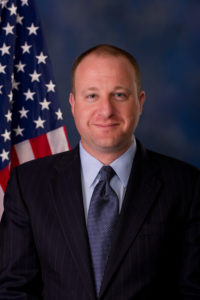 If we endorse Jared Polis, he will win. If we don’t endorse Jared Polis, he will win. That is the reality of incumbency in one of the nation’s bluest districts.
If we endorse Jared Polis, he will win. If we don’t endorse Jared Polis, he will win. That is the reality of incumbency in one of the nation’s bluest districts.
Representative Polis continues to be an enigma to those of us here at BW.
He does a lot of great things in between his occasional not-so-great things. And we really like him as a person.
For instance, Polis has come down hard in his opposition to Amendment 71, the spawn of the oil and gas industry designed to make it nearly impossible for citizens to amend their constitution in the future. For that we thank him.
On the TPP front, as recently as this week, Polis reiterated to us that he still hasn’t made up his mind as to whether or not he will vote for the trade deal.
We believe this is very unfair to voters. Polis knows that this is one of the top two or three issues of importance for his constituents, so we believe it is unreasonable for him to ask people to vote without knowing where he stands. And frankly, we think that the only reason for any politician to still be on the fence on TPP at this late date is in order to keep their political options open. In other words, we think “undecided” translates to “my standing in the Democratic Party is more important than the people I represent.” We don’t applaud that.
And then there are the oil and gas community rights and setback initiatives. In 2014, the initiatives were never going to make the ballot because supporters just didn’t have the money to pay enough signature gatherers. So Polis stepped in, spent a million bucks of his vast fortune and gathered enough signatures to put them on the ballot. He was a hero, for about a minute.
The next thing he did was trade them away to Hickenlooper for virtually nothing. It seemed, yet again, another political favor for the Party at the expense of his constituents.
And this year he was back. Polis supported and donated funds to ballot measures that would have given communities the ability to protect their citizens’ health and quality of life from the oil and gas industry. Unfortunately, 75 and 78 just barely failed to gather enough signatures to make the ballot.
Those are just the well-publicized issues. Polis does a lot of very good things for all of us here in Colorado that never make the pages of this newspaper, there is no denying it.
Enigma. What else can we say?
Polis has made no secret that he wants more power and standing in the National Democratic Party. Politico even reported that if he didn’t get it he would consider doing something else with his time and fortune.
We’d like to see Representative Polis spend more time representing his constituents and less time elevating his standing in the Democratic Party. He has the capacity to be an amazing Representative and often is, when the Democratic Party establishment doesn’t get in the way.
Oh well, like we said, Jared Polis will be elected with or without our endorsement, and most of the time, we’ll be all right with that.
Representative to the 115th United States Congress — District 4
Bob Seay (D)
Ken Buck (R)
Bruce Griffith (L)
Oil and gas extraction is a leading issue for the constituents of District 4, home to two of the state’s largest shale plays.
While Boulder Weekly has written extensively about the detriment oil and gas extraction poses to human health and the environment, we in no way believe a one-size-fits-all solution exists for the people of District 4 — and neither does Bob Seay.
Boulder Weekly got the opportunity to speak with Bob Seay and Bruce Griffith. Ken Buck did not return requests for an interview.
 Unlike Ken Buck, Bob Seay believes in the mountain of science that has long told us climate change is real and it’s manmade. Seay believes the U.S. must balance the economic benefits of the oil and gas industry with concerns about the environment; meaning that while we must move surely and swiftly toward clean energy sources (training people for new jobs created in the process), we must also respect the financial benefit that the oil and gas industry (particularly mineral rights) provides to many residents of District 4.
Unlike Ken Buck, Bob Seay believes in the mountain of science that has long told us climate change is real and it’s manmade. Seay believes the U.S. must balance the economic benefits of the oil and gas industry with concerns about the environment; meaning that while we must move surely and swiftly toward clean energy sources (training people for new jobs created in the process), we must also respect the financial benefit that the oil and gas industry (particularly mineral rights) provides to many residents of District 4.
Beyond the oil and gas issue, Seay supports a two-tiered minimum wage system — once again proving he doesn’t subscribe to any one-size-fits-all solution. Much like there are different wage requirements for restaurant workers, seasonal workers and agricultural workers, Seay believes there should be a separate wage requirement for small businesses that would allow them to remain competitive while still encouraging job creation in local communities.
Seay is an advocate for a single payer health care system and supports Colorado’s Amendment 69. He admits that the Affordable Care Act isn’t perfect, but vows to work to “expand this important law” if voted into Congress.
As a music teacher for the past 30 years, Bob Seay understands the day-to-day struggle of being working-class, and works with students and families who fight against the oppression of poverty. His stance in favor of free public education for four-year college, expanded support services for veterans and stronger workers’ unions makes Bob Seay the right candidate for District 4.
Regent for the University of Colorado — At Large
Alice Madden (D)
Heidi Ganahl (R)
If there were one race that could encapsulate all that is wrong with Colorado politics, it is this race. This race is pure Blueprint verses Redprint.
For those of you unfamiliar with those terms, it means that the billionaires who control Colorado’s Democratic party are represented by Alice Madden, while the billionaires that control Colorado’s Republican party are embodied by Heidi Ganahl.
We will be writing more about this race between now and the election because of its importance.
For those not familiar with the circumstances of Colorado’s largest university, it is currently being run by Republican activists for the benefit of various corporate interest, not the least of which is the oil and gas industry.
This is quite a feat considering that the main campus of the University of Colorado sits in the middle of left-leaning Boulder.
There are several things that have led to the university system’s takeover by the Republican Party, but it’s safe to say that its continued control rests with its ability to maintain a Republican majority on the board of regents. That majority allowed for Bruce Benson, an oil man and Republican activist, to be named President of the University despite having no academic qualifications to run such an institution. And under his leadership there has been a concerted effort to push the university system to the right.
The board of the CU foundation has become infested with people who do things like attend the annual Koch brothers gatherings where they participate in panels with topics like, “how to use the university system to further Koch’s goals and values.”
Some of those CU Foundation board members, including Earl Wright and Regent candidate Heidi Ganahl, are also board members of the Common Sense Policy Roundtable, the Koch brothers and Republican Party associated oil and gas front group that uses CU’s Leeds School of Business to “credibility wash” shallow research that serves to inflate the oil and gas industry’s importance to the state economy. That research is then used by other oil and gas front groups like CRED and Vital for Colorado in their efforts to defeat citizens initiatives such as this years 75 and 78. BW has written extensively on these connections so we won’t try to explain all of them here.
It suffices to say that regent candidate Hedi Ganahl is on the boards of the Common Sense Policy Roundtable and the Leadership Program of the Rockies, and both of these hyper conservative organizations are associated with the oil and gas industry and the Koch brothers. As such, Ganahl, a very successful businesswoman, is now one of the major players in the Republican Party/oil and gas industry Redprint strategy for turning Colorado from a blue to a red state and keeping it that way. Part of that strategy depends on maintaining control of the leadership of the CU system, which the election of Ganahl as regent will assure.
Which brings us to the Blueprint candidate.
 Regent candidate Alice Madden knows all about the Colorado Blueprint, the Democrat’s strategy for turning Colorado from red to blue which got its start back in 2004 and has been operating to one degree or another ever since. The Blueprint involves using the funding of billionaires Tim Gill and Pat Stryker and a good dose of backroom deals with the oil and gas industry to win strategic political races that can give Democrats control of the statehouse, governor’s mansion, university, etc. And doling out millions of dollars worth of state and federal solar energy grants to friends of the Blueprint didn’t hurt the cause either. If you want a clear picture of the Blueprint, just think Hickenlooper and oil and gas. It may be blue, but it’s not a pretty picture.
Regent candidate Alice Madden knows all about the Colorado Blueprint, the Democrat’s strategy for turning Colorado from red to blue which got its start back in 2004 and has been operating to one degree or another ever since. The Blueprint involves using the funding of billionaires Tim Gill and Pat Stryker and a good dose of backroom deals with the oil and gas industry to win strategic political races that can give Democrats control of the statehouse, governor’s mansion, university, etc. And doling out millions of dollars worth of state and federal solar energy grants to friends of the Blueprint didn’t hurt the cause either. If you want a clear picture of the Blueprint, just think Hickenlooper and oil and gas. It may be blue, but it’s not a pretty picture.
That’s the short version.
So here is BW’s dilemma: We have always taken the position that both the Redprint and Blueprint are equally undemocratic and therefore wrong. Even though we support many of the same progressive ideals as those behind the Blueprint, we think both political strategies relinquish too much control to a small number of uber-wealthy individuals who have their own political goals and too often have made backroom deals with the oil and gas industry in order to realize those goals.
What Coloradans end up with is Republicans pushing oil and gas extraction and Democrats pushing natural gas extraction. Since the same companies are producing both, often out of the same hole in the ground, both the Redprint and the Blueprint are killing Colorado when it comes to our environment and are greatly hindering the fight against global warming. The future of the planet is too important for any political party to trade away, yet both have done so.
For these reasons, in other years, we might not have endorsed in this race, but this time it is different.
The next Board of Regents may well be the one that helps to pick Bruce Benson’s successor. There are more than 60,000 students in the University of Colorado’s four-campus system who deserve leadership that is not informed by the Koch brothers, is not actively using university resources to support the oil and gas industry and that just maybe will once again recognize the rights of free speech for both faculty and students.
It is not an exaggeration to say that there are way too many climate change deniers in positions of leadership at the University of Colorado, and for the sake of the students and faculty, it’s time for that to change.
BW therefore endorses Alice Madden because it is critical that the Republican Party’s stranglehold on the Board of Regents be broken.
And should she win, we implore Alice Madden to change her positions on natural gas not just her rhetoric on natural gas. And we hope she will help lead CU’s movement to divest from all fossil fuels including natural gas.
The Blueprint Democrat’s continued commitment to politically exploiting the outdated “beyond coal” strategy, though expedient, may well be doing more environmental harm than good. The science has changed and now the Party must follow suit.
It is our hope that a Democratic majority on the Board of Regents would work to restore leadership at the university more concerned with education than politics.
Regent of the University of Colorado — Congressional District 4
Suzanne M. Sharkey (R)
Bob Owens (D)
 Boulder Weekly endorses Bob Owens. As described previously in the write up for the Regent At Large seat, we believe it is critical that the Republican stranglehold over the board be broken. The University of Colorado is being pushed too far to the right by its current hyper-conservative, activist Republican leadership and only a change in the Board of Regents can alter the university’s current course. It is critical for the morale of faculty and the education of the more than 60,000 students in the system.
Boulder Weekly endorses Bob Owens. As described previously in the write up for the Regent At Large seat, we believe it is critical that the Republican stranglehold over the board be broken. The University of Colorado is being pushed too far to the right by its current hyper-conservative, activist Republican leadership and only a change in the Board of Regents can alter the university’s current course. It is critical for the morale of faculty and the education of the more than 60,000 students in the system.
It is not BW’s desire to see the University of Colorado system become a tool for the Democratic Party as it has been for the Republican Party. As stated previously, it is our hope that a Democratic majority on the Board of Regents would work to restore leadership at the university more concerned with education than politics.
State Senator — District 17
Matt Jones (D) (uncontested)
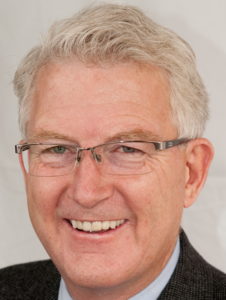 Colorado State Senator Matt Jones has represented the people of Boulder County for many years, first in the House of Representatives and then in the Senate. He’s been at the forefront of legislation to provide proper oversight of the oil and gas industry in the state, while he believes local governments should have the authority to regulate industrial development. He wants to make the Colorado Oil and Gas Conservation Commission (COGCC)more accountable to the citizens, while promoting renewable technology that not only can meet our energy needs but also create more jobs. He wants to reform TABOR, allowing for more funding in education, while also creating tuition caps and reducing student loan debt. Sen. Jones has worked tirelessly for the people of our community and we commend him for his dedication to public service.
Colorado State Senator Matt Jones has represented the people of Boulder County for many years, first in the House of Representatives and then in the Senate. He’s been at the forefront of legislation to provide proper oversight of the oil and gas industry in the state, while he believes local governments should have the authority to regulate industrial development. He wants to make the Colorado Oil and Gas Conservation Commission (COGCC)more accountable to the citizens, while promoting renewable technology that not only can meet our energy needs but also create more jobs. He wants to reform TABOR, allowing for more funding in education, while also creating tuition caps and reducing student loan debt. Sen. Jones has worked tirelessly for the people of our community and we commend him for his dedication to public service.
State Senator — District 18
Stephen Fenberg (D)
M. Peter Spraitz (R)
Boulder Weekly spoke on the phone with Stephen Fenberg. M. Peter Spraitz requested questions be sent over email. They were, but he never responded.
Let us state upfront that we have concerns with some of Fenberg’s campaign contributions, most notably those from Ted Trimpa, Pat Stryker and Rep. Jared Polis. In addition, The Gill Foundation has funded New Era Colorado, the nonprofit founded by Fenberg.
In other words, it’s as if Fenberg has stepped right out of the pages of Adam Schrager and Rob Witwer’s book The Blueprint: How the Democrats Won Colorado (and Why Republicans Everywhere Should Care).
To make a very long and complicated story short, Trimpa, Stryker, Polis and Tim Gill helped construct a political strategy for the Colorado Democratic Party called “The Blueprint” that is a system we see as being built on manipulation rather than transparency.
 With that being said, at this point we’re still willing to support Steve Fenberg as State Senator for District 18, though we lament what appears to be his launch into the Dem’s establishment politics. We hope he can refrain from playing their game. Our support is based on the fact that Fenberg is on the right side of all the issues that matter to Boulder residents: Reforming TABOR; changing the mission of regulatory agencies such as the COGCC and the Public Utilities Commission to prioritize people over profits; getting more Coloradans engaged in the democratic process; creating more funding for education and public transportation; significantly increasing the state’s renewable energy portfolio; and supporting policies that create equality for LGBTQ Coloradans with an extra focus on “Transgender Coloradans who often suffer the brunt of discrimination in the health care, criminal justice, and education systems,” according to his website.
With that being said, at this point we’re still willing to support Steve Fenberg as State Senator for District 18, though we lament what appears to be his launch into the Dem’s establishment politics. We hope he can refrain from playing their game. Our support is based on the fact that Fenberg is on the right side of all the issues that matter to Boulder residents: Reforming TABOR; changing the mission of regulatory agencies such as the COGCC and the Public Utilities Commission to prioritize people over profits; getting more Coloradans engaged in the democratic process; creating more funding for education and public transportation; significantly increasing the state’s renewable energy portfolio; and supporting policies that create equality for LGBTQ Coloradans with an extra focus on “Transgender Coloradans who often suffer the brunt of discrimination in the health care, criminal justice, and education systems,” according to his website.
State Representative — District 10
Edie Hooton (D) (uncontested)
State Representative — District 11
Jonathan Singer (D)
Corey Piper (R)
 We’ve endorsed Rep. Jonathan Singer in every election since 2012 and this year is no different. He has represented the voices of residents in northeastern Boulder County with clarity, diligence and authority. He has introduced a number of bills improving child welfare, government transparency, and mental health services and benefits. He has fought tirelessly on issues relating to oil and gas development and says by this point the lobbyists know to leave him alone. He’s decidedly against the Raise the Bar (Amendment 71), but supportive of raising the minimum wage and a statewide health care system.
We’ve endorsed Rep. Jonathan Singer in every election since 2012 and this year is no different. He has represented the voices of residents in northeastern Boulder County with clarity, diligence and authority. He has introduced a number of bills improving child welfare, government transparency, and mental health services and benefits. He has fought tirelessly on issues relating to oil and gas development and says by this point the lobbyists know to leave him alone. He’s decidedly against the Raise the Bar (Amendment 71), but supportive of raising the minimum wage and a statewide health care system.
And yet he still has “unfinished business” as State Rep., including income inequality and local control for industrial development. He believes in more transparency at the State House and he wants to continue higher education and skilled trade education reform. He hopes to find more funding for mental health, combating the opiate epidemic and rebuilding trust with law enforcement. He wants to scale back certain government regulations to make small businesses run smoother.
As more and more people are disillusioned with politics, he says it is his responsibility to listen to people, something he has done well to this point.
Republican candidate Corey Piper is running as part of what he sees as a diverse party with a diversity of views and he is clearly an independent thinker who does not simply fall lock stock in step with his party. He’s against the Raise the Bar initiative, in that it benefits the political structure more than the citizens. He is, however, a staunch defender of the Second Amendment, isn’t concerned with health risks caused by fracking in Boulder County, and doesn’t support either the Affordable Care Act or ColoradoCare (Amendment 69). He does believe in individual rights and using taxation to fund essential programs, not control behavior. Although his values are decidedly different from ours, we found his authenticity and rationale to be refreshing in a political world that is often marred by hypocrisy.
For the job he’s done so far and the work he has left to do, we endorse Jonathan Singer to represent District 11.
State Representative — District 12
Bob Dillon (R)
Mike Foote (D)
 First elected in 2012, Rep. Mike Foote has fought for campaign finance reform, more funding for K-12 education and increasing regulation on encroaching oil and gas development. He’s sponsored bills protecting pregnant women, victims and the mentally ill, while also fighting corporate use of foreign tax havens.
First elected in 2012, Rep. Mike Foote has fought for campaign finance reform, more funding for K-12 education and increasing regulation on encroaching oil and gas development. He’s sponsored bills protecting pregnant women, victims and the mentally ill, while also fighting corporate use of foreign tax havens.
Republican candidate Bob Dillon entered the race for District 12 at the party caucus this year, when it became clear there were no challengers to many incumbent Democrats in the state. As a veteran himself, Dillon is concerned with veteran affairs and a mental health care system that often leaves people in the emergency room or jail. However, he doesn’t take issue with fracking and doesn’t believe local control would be good for the overall wellbeing of Colorado.
Rep. Foote says he wants to continue to work on regulating the oil and gas industry in the state despite the fact that much of the legislation he sponsored on the topic failed to pass. And he remains committed to amending the mission statement of the COGCC to avoid what he sees as the clear conflict of interest: It’s charge to both promote and regulate the state’s oil and gas industry. He doesn’t support Amendment 71, Raise the Bar, saying that it shuts out grassroots movements and allows corporate and industry interests a clear advantage. In the long-term he’d like to see TABOR reform, in the short-term he hopes to pass legislation exempting certain revenues from the tax law, such as the hospital provider fee. Although he hasn’t been able to win every fight, Rep. Foote says he will continue to beat the drum for the issues his constituents care about. And Boulder Weekly continues to endorse Rep. Mike Foote for District 12.
State Representative — District 13
KC Becker (D) (uncontested)
State Representative — District 33
Karen Nelson (R)
Matt Gray (D)
Kim Tavendale (L)
Self-described as more pragmatic than ideological in his approach, newcomer Matt Gray comes from a family of public educators and feels it’s his time to do something more concrete that could have a positive effect on his community. With a background in public finance, Gray sees great possibility in creating TABOR-exempt enterprises to account for the growing demand for services such as education and transportation, services often underfunded by TABOR revenue limits.
When it comes to oil and gas development, Gray believes local governments are best qualified to determine industrial development within their jurisdiction and doesn’t think the issue of local control should have been determined through the courts. Moving forward he proposes creating a legal structure that would require both industry players and citizens concerned about their communities to build consensus.
Gray is running against Libertarian candidate Kim Tavendale and Republican Karen Nelson. A native of New Zealand and an ordained minister, Tavendale is running on the basic platform of the Libertarian Party. She seeks to lessen government regulation and is against both universal health care and increasing the minimum wage. She is adamant about representing the many independent voters in her district and sees her lack of allegiance to both the Republican and Democratic parties as a way to build bipartisan support.
Nelson has been a legislative aid at the State Capital for a variety of Republican lawmakers for over a decade. She is decidedly pro-fracking and doesn’t support reclassifying the hospital provider fee as TABOR-exempt. She also sees transportation as a major issue for District 33 but wants to look more into public/private partnerships, like that which resulted in the widening U.S. 36, to solve the issue. She is against raising the minimum wage and universal health care while supporting Raise the Bar (Amendment 71), since she believes the current system allows too many outside, special interest groups to amend the state constitution.
Matt Gray also supports Raise the Bar (Amendment 71) and opposes ColoradoCare (Amendment 69). These positions are in clear opposition to the stance of Boulder Weekly.
As a result, we are not endorsing any candidate in this race, but if we had to cast a vote in District 33, it would be for Matt Gray.
District Attorney — 20th Judicial district
Stan Garnett (uncontested)
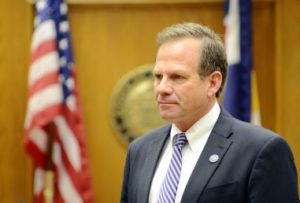 As DAs go, Stan Garnett has done a good job and we endorse him for another term even though he’s running unopposed. He has launched a number of important programs around the county to assist with everything from language barriers to homelessness.
As DAs go, Stan Garnett has done a good job and we endorse him for another term even though he’s running unopposed. He has launched a number of important programs around the county to assist with everything from language barriers to homelessness.
If we have a criticism, it is that we believe the District Attorney is sometimes a bit too cozy with his fellow elected officials and this familiarity can hinder his judgment.
Regional Transportation District Director — District I
Véronique Marie Bellamy
Lee Kemp
Judy Lubow
 RTD has come under fire in the last few years. In 2004, citizens voted for FasTracks, an RTD transportation option that cost voters millions in exchange for what was supposed to be a commuter train connecting Denver and Longmont. RTD spent the money building other rail options in Denver while pushing Longmont’s train plans decades into the future. Taxpayers in Boulder County are not happy.
RTD has come under fire in the last few years. In 2004, citizens voted for FasTracks, an RTD transportation option that cost voters millions in exchange for what was supposed to be a commuter train connecting Denver and Longmont. RTD spent the money building other rail options in Denver while pushing Longmont’s train plans decades into the future. Taxpayers in Boulder County are not happy.
Boulder County still wants the rail we paid for, and we at BW believe incumbent Judy Lubow is the best candidate to get the train here before our grandchildren die of old age.
Lubow has four years of RTD experience, and she has action-oriented plans to advance her constituents’ desires. Upon reelection, Lubow hopes to increase RTD ridership, work with local municipalities, secure more grants and offer low-cost solutions for FasTracks, including starting a rush hour-only service utilizing pre-existing railways.
She has the experience and knowledge to push forward the RTD, which is why we’re endorsing her for RTD Director — District I.
County Commissioner — District 1
Kevin Sipple (R)
Elise Jones (D)
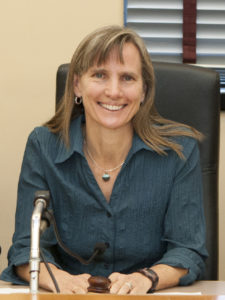 Determining who is best suited for the position of Boulder County Commissioner depends on how you view the responsibilities of the job. In some places, county commissioners are still referred to as “road commissioners.” And in some places that’s pretty much the only responsibility a commissioner is charged with.
Determining who is best suited for the position of Boulder County Commissioner depends on how you view the responsibilities of the job. In some places, county commissioners are still referred to as “road commissioners.” And in some places that’s pretty much the only responsibility a commissioner is charged with.
Boulder County is not one of those places.
Many Boulder County residents live here because of our commitment to open space and the environment. Issues like global warming and GMOs are mainstream and important and find their way to the county level of government. For that reason, being a commissioner in Boulder County means being well versed in many areas; from roads to sustainable energy to oil and gas extraction techniques to genetically modified organisms.
Boulder County residents have made it clear that the majority of them oppose oil and gas extraction anywhere near homes, schools and hospitals and most oppose it all together in our county. The majority of citizens also oppose growing genetically modified crops on county-owned open space lands.
On important issues such as these, Elise Jones has shown leadership as a Boulder County Commissioner. She was also tested during the great flood of 2013 that devastated the county’s infrastructure. We are still rebuilding from that flood and all of the current commissioners deserve credit for their handling of that catastrophe.
Her opponent Kevin Sipple seems like a capable guy with excellent business acumen. But we believe Elise Jones has done a great job as commissioner and we believe that her experience will serve the people of Boulder County well during her next term. She is a near perfect fit for the kind of “big picture”commissioner the people of Boulder County want and expect.
We endorse Elise Jones for County commissioner District 1.
County Commissioner — District 2
Deb Gardner (D)
Paul Danish (R)
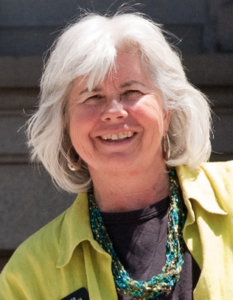 Like her fellow Boulder County Commissioner Elise Jones, Deb Gardner is a good fit for the type of County Commissioner we believe the voters here want and expect. Environmental issues should be and are at the forefront for Gardner. We have agreed with her votes concerning oil and gas extraction thus far and expect her to continue to navigate the best path possible to accomplish to expectations of county residents on that controversial issue. She did an excellent job during and since the flood and her accounting background is a good quality to have in a commissioner as well.
Like her fellow Boulder County Commissioner Elise Jones, Deb Gardner is a good fit for the type of County Commissioner we believe the voters here want and expect. Environmental issues should be and are at the forefront for Gardner. We have agreed with her votes concerning oil and gas extraction thus far and expect her to continue to navigate the best path possible to accomplish to expectations of county residents on that controversial issue. She did an excellent job during and since the flood and her accounting background is a good quality to have in a commissioner as well.
Her opponent in this election is Paul Danish. As a matter of full disclosure, Mr. Danish is a regular columnist for Boulder Weekly and one of the most interesting politicos we know.
Danish is a Republican who has previously served as a member of the Boulder City Council and as a Boulder County Commissioner. He is the author of the famed Danish Plan, the growth limitation plan that many credit with preserving the quality of life in Boulder for the past few decades. And we should note he was fighting for the legalization of marijuana two decades ago, long before most of us had ever seriously considered such a thing. In short, Paul Danish is a smart, committed person who is hard to pigeonhole. He is a critical thinker who has lived outside the box for a long time.
That said, we disagree with his positions on oil and gas extraction in Boulder County and GMOs on county open space, although he is open to a full vote of the citizenry on the latter. Danish thinks our roads are in bad shape and need to be a one of our top priorities and he thinks we are wasting money on silly things that would better be spent on roads. We think he makes some pretty good points on roads and spending.
But it goes back to what we said in the write up for the District 1 race. Who is the best fit for Boulder County Commissioner depends on your vision for the job. In this county we believe residents want and expect a commissioner to fight for the environment while influencing other counties around the country to do the same.
In Boulder County in 2016, we believe that Deb Gardner is the best fit for the job and she has proven that she can more than handle the complicated issues currently facing the county. We endorse Deb Gardner for Boulder County Commissioner — District 2.
Town of Superior — Trustee
The candidates with the highest number of votes will each serve a four-year term
(Vote for not more than three)
Anthony Stewart
Gladys Forshee
Jason Reese
Jerry Malia
Kevin C. Ryan
Mark Lacis
Narayan Shrestha
Patricia E. Dunham
Sandie Hammerly
Boulder Weekly was able to speak with eight of the nine candidates for Superior’s Board of Trustees. Jason Reese had not responded by the time Boulder Weekly’s Vote Guide went to press on Wednesday afternoon.


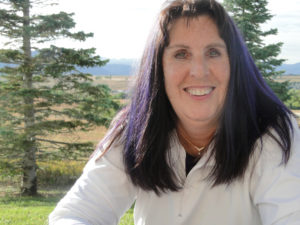
We’ve taken a different approach in recommending candidates for the three open positions on Superior’s Board of Trustees. While voters may only choose three candidates, Boulder Weekly is suggesting five candidates from whom we think those three should come from. Frankly, the candidates all roughly want the same thing: for development in Superior to move at a reasonable pace while bringing in the right mix of businesses. Most candidates spoke of increasing voter engagement in Superior, and all expressed a desire for Superior to be a town where residents can find everything they need, not just a bedroom community.


We’ve chosen these candidates based on a number of factors, including their civic engagement and their knowledge of Superior. Anthony Stewart and Gladys Forshee have both run for the Board of Trustees in the past (and Gladys can often be found at trustee meetings, letting the board know her thoughts as a longtime resident of original Superior). Mark Lacis is currently a member of Superior’s Planning Commission, as well as a lawyer and a father of two. Patricia Dunham has been on Superior’s Open Space Advisory Committee for the last three years; she says her biggest concern is fiscal responsibility. Sandie Hammerly has spent 30 years providing leadership to nonprofit organizations, and has served as vice chair of Superior’s Parks and Recreation Advisory Committee for the past three years.
Judge Retention
Boulder County ballots will include 11 statewide and two local judge retention questions. If a judge is removed by a majority “No” vote, a bipartisan commission submits candidates to the governor and his staff, and someone new is appointed.
For our endorsements we used the Blue Book text, authored by the Colorado Office of Judicial Performance Evaluation (COJPE), as well as our own research into the judges’ previous evaluations and written opinions.
On the ballot, the questions read: Shall Judge [name] of the Court [name] be retained in office?
Colorado Supreme Court
Justice William Hood: Retain
William Hood was sworn in as a member of the Colorado Supreme Court in January 2013. The COJPE Commission notes that Hood is given commendable marks for fair treatment of attorneys on both sides of the case. Attorneys commented on Hood’s intelligence and thorough preparation for oral arguments. The Commission, as well as attorneys, found his written opinions to be well written, clear and well-reasoned. We recommend William Hood for retention.
Colorado Court of Appeals
Judge Karen M. Ashby: Retain
Judge Ashby has served on the Colorado Court of Appeals since December 2013. Prior to that she served as the presiding judge in Denver Juvenile Court and as a judge in Aurora Municipal Court. She has won numerous awards over the years, including Judge of the Year from the Colorado Court Appointment Special Advocates and the Excellence in Practice from the Colorado Department of Human Services/Colorado Court Improvement Project. Of attorneys completing the COJPE survey, 71 percent recommended to retain. Of judges completing the survey, 98 percent recommended to retain. We recommend Judge Ashby be retained.
Judge Michael H. Berger: Retain
Judge Berger was appointed to the Colorado Court of Appeals in January 2014. During his time as a lawyer, his practice focused on commercial litigation, appeals and legal ethics. Of attorneys completing the COJPE survey, 77 percent recommended retaining Judge Berger, and 100 percent of surveyed judges recommended that he be retained. With a history of timely, fair, well-written opinions, Boulder Weekly recommends Judge Berger be retained.
Judge Steven L. Bernard: Retain
Judge Bernard has been on the Colorado Court of Appeals since July 2006. The COJPE writes that “numerous” attorneys stated Bernard showed bias in favor of the prosecution in criminal cases, however, the Commission’s review of “several” of Judge Bernard’s most recent opinions did not, as a whole, reflect a prosecutorial bias. Judge Bernard was given high marks for oral preparation, and has a long history of service in judiciary committees and in teaching about law. We recommend a vote in favor of retaining Judge Bernard.
Judge Stephanie E. Dunn: Retain
Judge Dunn was appointed as a judge of the Colorado Court of Appeals in June 2012. The COJPE survey responses indicate that Judge Dunn is courtesy, fair and impartial toward both sides during a case. She is also cited as being well-prepared, courteous and engaging. We recommend Dunn for retention.
Judge David Furman: Retain
David Furman was appointed to the Colorado Court of Appeals in December 2005. COJPE surveys indicate Judge Furman’s weakness lies in his writing abilities, “especially in the area of writing opinions that adequately explain the basis of the Court’s decision.” Despite that, Judge Furman is noted for his impartiality, equal treatment and preparation. We recommend Furman for retention.
Judge Robert D. Hawthorne: Retain
Judge Hawthorne was appointed to the Colorado Court of Appeals in August 2005. In 2008, Hawthorne was asked to pursue a plan to improve his opinion writing, and the COJPE Commission feels that Hawthorne “responded positively” to that request. In his self-evaluation, Judge Hawthorne indicated that he strives to further improve the clarity of his opinion writing. Attorneys gave Hawthorne higher-than-average marks on his fairness and impartiality, courtesy and allowing attorneys to present their cases. While the Commission believes his writing skills still need work, they recommend Hawthorne for retention, as does Boulder Weekly.
Judge Jerry N. Jones: Retain
Judge Jones was appointed to the Colorado Court of Appeals in 2006. In this most recent evaluation, the COJPE Commission found Jones to be “inconsistent” in his demeanor toward attorneys, being courteous to some and not with others. Jones was, according to the COJPE report, “initially dismissive” of this claim, but discussed this issue “thoroughly” at a follow-up interview (at Judge Jones request). Jones has been cited for his impatience in the past. However, 74 percent of surveyed attorneys and 97 percent of surveyed judges recommended Jones be retained.
Judge Anthony J. Navarro: Retain
Appointed in January 2013, Judge Navarro is still relatively new to the appellate court. His survey scores placed him below average for being fair and impartial toward each side of the case, making reasoned decisions based upon law and facts and refraining from issues that need not be decided. Since these issues were raised with Navarro during his interim evaluation in 2015. The Commission feels that Navarro has made great progress in improving these areas. We recommend Navarro be retained
Judge Gilbert M. Román: Retain
After 11 years on the Colorado Court of Appeals, Judge Román has impressed the COJPE Commission by not only improving his skills, but also sharing his techniques and experiences with other judges. He is described as well prepared, courteous and actively engaged. It’s impressive to see a longtime member of the court with such high regard from both attorneys and judges. We recommend Judge Román be retained.
Judge Diana Terry: Retain
Judge Terry was appointed to the Colorado Court of Appeals in July 2006. While some attorneys commented negatively on Judge Terry’s demeanor during oral arguments, the Commission found her to be courteous, professional and business-like at oral arguments. Despite some attorney’s concerns with Judge Terry, the survey results rated her about the same as the average for other judges on the Court of Appeals. We recommend Judge Diana Terry be retained.
20th Judicial District
Judge Andrew Hartman: Retain
Judge Hartman was appointed as a District Court Judge in the 20th Judicial District in September 2013. In an interview with the COJPE Commission, Judge Hartman acknowledged that he had to learn many new areas of the law with which he did not have prior experience and a desire to continue to learn. Of attorneys completing the survey, 89 percent recommended Hartman for retention, as did 95 percent of surveyed non-attorneys. With additional experience, it seems Judge Hartman will continue to grow, We recommend Andrew Hartman for retention.
Judge Bruce Langer: Retain
Judge Langer was, as Judge Hartman, appointed to the District Court of the 20th Judicial District in September 2013. Also like Hartman, Judge Langer has admitted to having to learn about new areas of law during his time on the bench for the 20th District Court. He has expressed a commitment to equality, justice and knowledge of the law. He was recommended for retention by 80 percent of surveyed attorneys and by 80 percent of non-attorneys. We recommend Bruce Langer for retention.
Amendment T: No exception to Involuntary Servitude Prohibition
Yes
In 1876, Colorado officially prohibited slavery and involuntary servitude in the state with the exception of when used as a punishment for a crime. In the name of freedom and equality, Amendment T would remove language in the Colorado Constitution that allows for such slavery and involuntary servitude. Proponents argue that this is a symbolic statement but would not prevent prison work and community service programs from continuing. Opponents argue the change could create legal uncertainty for such programs. The Colorado legislature, both the Senate and the House of Representatives, unanimously approved the measure for the ballot last spring. In hopes of creating a freer society, Boulder Weekly endorses Amendment T. Vote yes.
Amendment U: Exempt Certain Possessory Interests from Property Taxes
Yes
Amendment U would eliminate a tax for the use or lease of government-owned property valued under $6,000. There are around 5,000 such interests in Colorado that produce an estimated $125,000 in annual tax revenue statewide. The administrative cost of enforcing this tax on such business often exceeds the tax revenue, so cutting the tax actually saves money. With no obvious nefarious motives behind ending this tax, we endorse voting Yes on Amendment U.
Amendment 69: Statewide Health Care System (ColoradoCare)
Yes
This measure would create a statewide health care system, ColoradoCare, essentially expanding Medicare- and Medicaid-type coverage to all Colorado residents with a constitutional amendment. Instead of paying individual insurance premiums, taxpayers would be charged a 10 percent income tax that is estimated to bring in $25 billion in new tax revenue by 2019. The single-payer health care system would be governed by a 21-member voter-elected board who would also assume state and federal funding for health care and would negotiate health care costs with providers. ColoradoCare would allow for alternative forms of private insurance, but residents would still be required to pay the ColoradoCare income tax.
The measure eliminates insurance deductibles and doesn’t require copayments for primary and preventative care services. Prescription drugs would also be covered, as would pediatric care, mental health services, designated dental, vision and hearing benefits, laboratory services, and women’s health and maternity care. It also covers the medical portion of workman’s comp. Proponents claim that through ColoradoCare, 96 percent of health care costs would be covered and 80 percent of Colorado families would save on health care.
Critics argue the new tax would give Colorado the highest taxes in the nation and would effectively double the size of the state budget. They also say the board would be given too much unchecked power without oversight from the state government and the measure could negatively affect the quality and service levels of health care in the state.
There is no question Amendment 69 comes with some uncertainties. However, with individual health-insurance premiums expected to increase by approximately 20 percent in 2017 under the current system, and with the examples of virtually every other industrialized nation in the world already operating with a fair and just single-payer system similar to the proposed ColoradoCare, we believe it’s time for Colorado to lead the way in establishing universal health care for all its residents. Vote yes on Amendment 69.
Amendment 70: State Minimum Wage
Yes
Following $15 minimum wage laws in New York, California and the District of Columbia earlier in 2016, Colorado is one of four states considering minimum wage increases on the Nov. 8 ballot. As it currently stands, a full-time minimum wage earner in Colorado makes approximately $17,285 a year, or just $300 a week after taxes.
If passed, this measure would amend the state constitution and increase Colorado’s current minimum wage of $8.31 per hour by $0.99 on January 1, 2017 and every year thereafter until it reaches $12 in 2020. For tipped workers, it would increase the minimum wage to $8.98 plus tips by the year 2020. After 2020, Amendment 70 allows for an increase in the minimum wage each year based on cost-of-living increases. It does not allow for the minimum wage to decrease if the cost of living drops.
According to groups in support of the measure, 85 percent of Colorado’s minimum wage workforce are over 20 years old and 35 percent are over 40 years old. Additionally, the measure is expected to increase the wages of 420,000 Coloradans or 20 percent of the population and boost the Colorado economy by $400 million.
Opponents argue that increasing the minimum wage could have adverse effects on the very people it is purporting to help. Employers could cut positions, scale back hours and decrease benefits to make up for having to pay higher wages. And consumer prices would also increase to accommodate higher employment costs. They also argue it could potentially cost the state 90,000 low-earning jobs.
However, prominent economists from across Colorado have come out in support of Amendment 70, citing rigorous national academic studies that suggest increasing the minimum wage minimally affects minimum wage earners’ employment, if at all, and could stimulate the economy as workers spend their additional earnings. Small business owners also argue for the minimum wage increase, saying it helps increase productivity and reduces turnover. The measure is supported by many elected officials including Gov. John Hickenlooper, Boulder City Council as well as U.S. Secretary of Labor Tom Perez.
As income inequality becomes a growing concern across the nation and Colorado continues to experience rapid growth, increasing the minimum wage is necessary step to ensure economic security for all Coloradans. Vote yes on Amendment 70.
Amendment 71: Requirements for Constitutional Amendments (Raise the Bar)
No
Boulder Weekly is adamantly opposed to Raise the Bar and strongly urges a no vote on Amendment 71.
The argument in favor of this amendment is that it is currently too easy for the Colorado Constitution to be amended. At this time, to put an amendment on the ballot requires gathering enough signatures from valid Colorado voters living anywhere in the state to equal 5 percent of the votes cast in the most recent election for Secretary of State. This year that formula determined that it would take 98,492 qualified signatures to get an amendment on the ballot. Once on the ballot, an amendment is added to the Constitution if a simple majority of Colorado voters pass it.
If Amendment 71 were to pass, signatures would have to be collected in each of the state’s 35 senate districts in an amount equal to at least 2 percent of registered voters in that district. In addition, once an amendment made the ballot, a 55 percent super majority of all voters would be required to actually amend the constitution should 71 pass.
Let’s not mince words. Amendment 71 is the creation of the oil and gas industry and is being pushed in an effort to prevent Colorado residents from ever being able to put forward future amendments that could give local communities the right to regulate oil and gas within their neighborhoods or increase the setbacks between the industry’s drilling and production operations and occupied homes, schools and hospitals.
But the collateral damage from this amendment should it pass would reach far beyond the oil and gas issue. It would severely limit the rights of all Colorado citizens regardless of their party affiliation or political persuasion. That’s why so many diverse voices are opposing 71 from the conservative Independence Institute to Democratic Rep. Jared Polis. When industry threatens our democracy as in the case of Amendment 71, it makes for strange bedfellows and that is not a good thing.
The industry is using its considerable influence over both the establishment Democratic and Republican parties in its attempt to push this oil and gas industry Trojan horse through the Colorado electorate.
The industry and its allies such as Colorado Concern are spending millions of dollars on the effort.
If 71 passes, the cost of placing an amendment on the ballot will become prohibitive to all but the wealthiest special interest groups such as the oil and gas industry, developers and other Colorado Concern members. Not only will Amendment 71 deny access to the amendment process to most average citizens groups, it would allow small enclaves of extremism, conservative or liberal, to kill future amendments despite their popularity with the overall state population. A single small speck of the electorate in Weld or Garfield or Boulder County would be, in effect, given a veto vote over the other 5 million residents of Colorado.
That is not how a true democracy works.
Also, requiring a 55 percent super majority once an amendment does make the ballot is simply creating an extra, anti-democratic hurdle in order to protect the oil and gas industry’s profits and its current ability to control Colorado’s political system at the expense of the public’s health and quality of life.
This Amendment is bad for all Coloradans no matter their political persuasion.
If there is anything positive to be said about Amendment 71, it is that it sheds light on which politicians and media organizations are in the pocket of the oil and gas industry.
So please check the no box on the oil and gas industry’s Amendment 71.
Boulder Weekly will be doing additional reporting on Amendment 71 in the coming weeks.
Amendment 72: Increase Cigarette and Tobacco Taxes
No
This amendment would increase the tax on a pack of cigarettes from 84 cents to $2.59, while also substantially increasing taxes on other tobacco products and earmarking the money for specific programs. While the extra money would benefit valuable programs for children and veterans, it would do so on the backs of a specific portion of the population, not the whole. Furthermore, a disproportionate percentage of cigarette smokers have lower-than-average incomes. It’s unfair to take an additional $300 million annually, largely from Colorado’s low-income families. And research shows sin taxes do little to curb consumption or improve public health. We oppose Amendment 72.
Proposition 106: Access to Medical Aid-in-Dying Medication
Yes
Proposition 106 has been called the end of life options act, assisted death and dying with dignity. But they all mean the same thing: allowing mentally capable adults with terminal illness the right to end their life on their terms.
While it’s a controversial issue, with much religious opposition, we believe people should be able to choose to receive medication prescribed by a willing licensed physician that can be self administered to bring about death.
The proposition clearly lays out a system of checks and balances, requiring two licensed physicians to confirm the patient’s prognosis of six months or less to live. Plus, the patient must confirm they know about other treatment options and that they are making the decision voluntarily. If thought to be mentally incapable, the patient would also undergo a evaluation by a licensed mental health professional. The initiative also ensures criminal penalties for persons knowingly violating these regulations while administering the medication.
The terms outlined in this proposition would prevent abuse of the system and provide relief for those who choose to utilize it. Vote yes on Proposition 106.
Proposition 107: Presidential Primary Elections
Yes
The 2016 Colorado Democratic caucus was chaotic at best, ineffective at worst. The state Republican Party decided not to hold a presidential caucus at all. Proposition 107 seeks to change all of that by returning presidential primaries to the state in 2020, after abandoning them in 2000 to save money. The measure will establish a presidential primary in Colorado every four years to be funded and administered by Colorado counties. The current caucus system puts the financial burden and administration on the political parties. Projected cost of conducting presidential primaries is $5 million in an election year.
Additionally, Proposition 107 allows unaffiliated voters a chance to vote in the primaries through a combined ballot that would list both parties’ candidates, but would only allow voters to choose one party’s candidate. Unaffiliated voters currently make up 35 percent of Colorado’s voting population. Voters registered with a particular party would only be allowed to vote for their party’s candidates.
Proponents argue this measure would increase voter participation, accommodate unaffiliated voters who in many ways have rejected the traditional two-party system and serves all of Colorado voters better than the current caucus system. Critics argue a presidential primary shifts the tax burden to the voters, dilutes the cohesiveness of the political parties and could potentially change election results. The chairmen of both the Colorado Republican and Democratic parties oppose the measure, while many prominent politicians support it.
If 2016 has shown us anything, it is the dissatisfaction with establishment politics and the need to both engage and accommodate voters who are disenfranchised from the mainstream political parties. In the interest of pursuing a more fair and just democracy, Boulder Weekly supports Proposition 107.
Proposition 108: Unaffiliated Voter Participation in Primary Elections
No
More than a million Colorado voters are registered as unaffiliated. That is more than the number of registered Democrats or Republicans in our state.
On its surface, this proposition has some appeal. There is no question that the candidates who make it through the primary process of the two major parties tend to be somewhat predictable of late. Tea Party and other conservative activists now dominate the Republican Party primary process, while establishment candidates more loyal to party politics than the electorate tend to dominate the Democratic Party side of things.
And while it might be a good political evolution to allow unaffiliated voters to participate in the primary process, the manner in which Proposition 108 is written should give all of us pause. There may just be a bit of bait and switch going on within the fine print.
Prop 108 would not only allow unaffiliated voters to participate in the party primaries, it would also allow the parties to “opt out of holding a primary election that is open to affiliated voters. Instead, they [the parties] may choose to nominate candidates in an assembly or convention that is limited to voters affiliated with that party.”
This opt out can be decided by a three-fourths majority vote of a party’s central committee.
So here’s the thing, pass 108 and unaffiliated voters can vote in primaries. But pass 108 and the parties can stop having primaries.
Passage of 108 could very well solidify the establishment’s control over the candidate selection process.
If the Democratic Party’s central committee can simply decide not to allow a primary, it’s pretty easy to make the case that someone of the Bernie Sanders platform ilk wanting to challenge the party establishment might not get the chance.
On the other side of the aisle, the Republican establishment is even more desperate to pass 108. Activists of the Trump and Tea Party ilk have taken over the primary process and the candidates the party is currently producing are threatening the old guard.
Because of the way this proposition is written, it might be better for unaffiliated voters to participate in party primaries by simply temporarily switching their affiliation. That’s what many Sanders supporters did last time around. It’s simple to do, and at least you could count on there still being primaries to vote in.
Boulder Weekly’s position is vote no on 108. Giving the party establishment the opportunity to choose its candidates while suspending the primary process all together just smells a bit fishy. Buyer beware on this one. It should have been written more like Prop 107.
County Issue 1A: Road and Bridge Mill Levy Increase
Yes
County Issue 1A proposes raising County taxes by $5.5 million annually for 15 years. The funds will go toward road and bridge projects throughout the County and also rehab for local access subdivision roads in unincorporated Boulder County.
While we’d prefer the funding to come from the tax extension proposed in County Issue 1C, which would be used for sustainability projects, we haven’t been given that option. Therefore we endorse voting yes on County Issue 1A to improve our roads.
County Issue 1B: Countywide Open Space Sales and Use Tax Bond Authorization and Tax Extension
Yes
Issue 1B will increase County debt by $30 million with a maximum repayment cost of up to $54 million. The purpose of this increased debt is to fund the acquisition of additional open space. There will be no increase in taxes to pay for this new debt as 1B also would extend the County’s existing 0.25 percent sales and use tax for open space, which is currently set to expire at the end of 2019 through the end of 2034, and authorizes the use of one-half of the revenue derived from the extension be used to repay the new debt created by the passage 1B. The other half of the funds derived from the aforementioned extension would be spent for sustainability programs as set out in Issue 1C should it also pass.
The population of Colorado and Boulder County continue to skyrocket. There is no question that one of the primary drivers of Boulder County’s amazing quality of life is our continuing support for an aggressive open space program.
That said, Boulder Weekly recommends a yes vote on 1B.
County Issue 1C: Countywide Sustainability Sales and use Tax Extension
Yes
Passage of Issue 1C would extend the County’s existing 0.25 percent sales and use tax for open space, which is currently set to expire at the end of 2019 through the end of 2034. It also would authorize the use of one-half of the revenue derived from the tax extension for the funding of sustainability infrastructure and programs including but not limited to programs to aid in water conservation; recycling and composting services and facilities; energy efficiency and renewable energy services; assistance to local farmers to grow more local organic food for County residents; and programs to increase transportation choices by making it easier to use public transit, providing more affordable transportation for low-income residents and students, and making it easier to drive electric cars by adding charging stations.
All of these things are good for the future of Boulder County, and since they will not result in a tax increase, we recommend a yes vote on 1C.
County Question 1D: District Attorney Term Limit Extension to Four Terms
Yes
This ballot question is brought to you by Stan Garnett, who currently holds the District Attorney’s office. In August, Garnett asked the Boulder County Commission to consider including an extension to prosecutorial term limits from the three currently allowed to four consecutive four-year terms.
Also on this year’s Boulder County Ballot, Garnett is running — unopposed — for his third term. If approved, County Question 1D would allow Garnett to seek a fourth term in 2020.
While we endorse Garnett in his bid for a third consecutive term, we question the need to extend Boulder County’s DA term limit. The 20th Judicial District already has one of the lengthier allowances for elected prosecutors among the state’s jurisdictions. The majority of the state’s 22 judicial districts allow district attorneys to serve two four-year terms. Denver and Weld counties, like Boulder, also allow for three, while Pueblo County has no term limits for DAs.
Garnett believes that a fourth term for the DA’s office is important because voters extended the County Sheriff’s term limits to four in recent years. Because the two offices work closely together, matching term limits are optimal.
OK, we’ll bite. Besides, it takes time in an office to fully understand the complexities of the position, but we’re pretty sure Garnett has them down.
City of Boulder Ballot Issue 2H: Sugar Sweetened Beverage Product Distribution Tax
No
Ballot Issue 2H adds a $0.02 excise tax on distributors of most drinks with more than 5 grams of added sweetener per 12 ounces. We oppose 2H with exactly the same line of logic as we use to oppose Amendment 72 — this is a sin tax that provides money for beneficial programs on the backs of a small segment of the population. We reiterate that sin taxes are regressive, and research shows they do little to curb consumption or improve public health.
We hate it when people call Boulder a “nanny state.” We hate it more when they are right.
We endorse a no vote on Ballot Issue 2H.
City of Boulder Ballot Question 2I: Clarify and Amend Blue Line, Water Not Supplied West of Line
Yes
This ballot question serves to clarify the Blue Line boundary, which was established in Boulder Home Rule Charter section 128A, approved in 1959. The original wording for the Blue Line based the boundary on elevation, which has led to disputes of the exact location of the line. The original purpose of this line was to protect open space, and supporters of the bill say this clarification would uphold that purpose and only serve to resolve any confusion. We agree, and therefore are for the measure.
City of Boulder Ballot Question 2J: Provide Insurance Benefits for Council Members
Yes
If passed, this measure would amend the Boulder Home Rule Charter to allow City Council Members eligibility to receive the same benefits as full-time city employees including health, vision, dental and life insurance plans beginning January 1, 2020. The City of Boulder already has a comprehensive benefits package for other employees and adding City Council to such a plan is a small price to pay for the amount of time and energy Council Members dedicate to public service. Boulder Weekly adamantly endorses Question 2J with the belief that it could increase the number of citizens who see serving on City Council as a viable option for civic engagement.
City of Boulder Ballot Question 302: Qualifications of Council Members
No
We oppose this ballot question with the same logic with which we stand for extending the DA’s term limits: It takes time in an office to fully command the issues that a council member will regularly face. Currently, Boulder’s City Council has two members with 16 years of non-consecutive membership, one member with four years, three members with two years, and three new members with six months under their belts.
We endorse a no vote against City of Boulder Ballot Question 302.
City of Lafayette Ballot Issue NO. 2C: City of Lafayette Community Bus Pass Program Levy
Yes
Lafayette’s Ballot Issues No. 2C asks for a raise in taxes of $575,000 in the first fiscal year, and then whatever amount necessary, not exceeding 1.25 mills, to fund bus passes for Lafayette residents. The tax would start in 2017 and continue to 2022, unless further extended, and a bus pass for persons whose primary residence is in Lafayette would come at no or nominal cost. Increased public transportation has a long list of benefits from communal to environmental, which is why we endorse 2C.
City of Lafayette Ballot Issue NO. 2D: City of Lafayette Storage Tax
No
Again, another sin tax, if not in the traditional sense of sin taxes. We oppose this measure because it, once again, taxes a small segment of the population in order to benefit a program, in this case, “to defer the expense of the general municipal services of the city.”
We endorse a no vote on City of Lafayette Ballot Issue No. 2D.
City of Lafayette Ballot Question No. 2E: Authorizing the Provision of Telecommunication Services
Yes
This measure would allow the City of Lafayette to provide internet, telecommunication and/or cable services to residents, schools, businesses, libraries, nonprofit organizations and other service users. These efforts have been stopped in the past due to Senate Bill 152, which prohibits governments for providing these services without electoral approval. So by approving this ballot, the City would gain the ability to explore telecommunication options to provide to the community, notably affecting public places like libraries and parks. With more of our daily lives relying on internet access, this ballot measure would be beneficial to a multitude of people, both residents and non-residents of Lafayette.
City of Lafayette Ballot Question No. 2F: Charter Amendment Boards and Commissions Qualifications
Yes
This measure would eliminate the requirement that all Lafayette board and commission members be electors of the city while maintaining the current residency requirement. In doing so, members of the community not eligible to vote, such as green card holders (but not U.S. citizens) and youth, would be able to serve on City boards and commissions, although they would still have to live within city limits. The Lafayette City Council endorses this measure, believing that the way the system currently works disqualifies people with expertise, while passing the measure expands the pool of candidates that could serve the City well on boards and commissions. Boulder Weekly also endorses Ballot Question No. 2F as a straightforward way to support diversity and create a more inclusive government.
City of Louisville Ballot Issue 2A
Yes
Ballot Issue 2A represents a tax increase of up to $1.82 million annually, or by a lesser amount that would be necessary to pay the debt not exceeding 3.35 mills for 25 years. It also proposes a debt increase of $28.6 million, with a repayment cost up of up to $45.4 million.
The funds garnered would go toward constructing, expanding and renovating the Louisville Recreation/Senior Center and the pool facilities located at Memory Square Park.
We believe the investment would be worth it for to enrich the Louisville community and for the use by future generations to come.
City of Louisville Ballot Issue 2B
Yes
Ballot Issue 2B goes hand in hand with 2A and provides funds for for operating and maintaining the Louisville Recreation/Senior Center and pool facilities at Memory Square Park. 2B would increase taxes in 2018 by $575,000, then annually by additional amounts raised from the levy of a supplementary sales and use tax of 0.15 percent beginning Jan. 1, 2018.
You can’t build the center without maintaining it, so we say vote yes on 2A and 2B.
Town of Superior Ballot Question 2G Authorizing Municipal Broadband Services
Yes
Ballot Question 2G would allow the Town of Superior the legal right to provide high-speed internet, telecommunication services and cable TV serves to residents, businesses, schools, nonprofit organizations, libraries and other users through private public partnerships. They’d do this without increasing taxes. Sounds good to us. Vote yes.
Boulder Valley School District RE-2 Ballot Issue 3A
Yes
In 2014, voters approved more than $576 million dollars for this school district. Now the board of education is seeking another increase of $10 million for 2016 and whatever else it needs going forward that can be generated by a mill levy not to exceed 4 mills that will increase by no more than 1 mill per year. The increase is for capital construction, technology upgrades, maintenance, etc., the same issues cited for the last $576 million that was considered to be a massive amount of money at the time. In fact, some school board members even speculated publically that it was far more money than the district actually needed. Apparently that was not the case if only two years later BVSD is looking for millions a year more from property taxes which it says it needs to maintain its current quality, hire more teachers, protect the district from any future cuts to statewide education funding, and provide students with innovative opportunities.
While no one seems to be making the case that BVSD’s needs are critical at this time, aside from the hiring of more teachers perhaps, we think education funding is important, more important than almost any other public obligation. Boulder Weekly endorsed several of the current school board members and we believe that, top to bottom, it is a quality board. We are a bit less impressed with the district’s leadership, which tends to be overly secretive, poor at communicating with the public and the school board.
Because education is a priority and the community can obviously afford to adequately fund it, and because we have confidence in the current school board, Boulder Weekly is encouraging a yes vote on Boulder Valley School District RE-2 Ballot Issue 3A.
St. Vrain Valley School District RE-1J Ballot Issue No. 3A
Yes
Yes, yes and more yes on this educational ballot issue. The St. Vrain Valley School district is doing a tremendous job educating our children, the future leaders of our communities and our country. The school district needs to increase its debt by $260.34 million dollars by issuing general obligation bonds that will require an increase in district taxes of not more than $45,583,025 annually.
All right, we understand that those are big numbers. But the money that the district is asking for is needed to repair and renovate existing school buildings and add additional classrooms; address safety and security issues; and make facilities more energy efficient, which will save money.
Passage of 3A will also pay for three new school buildings needed to keep up with district population growth and help purchase badly needed equipment that will enhance the teaching of science, technology, engineering and math programs.
We don’t think passing 3A is optional. We believe it is absolutely necessary for the continuing success of the St. Vrain School District.
Boulder Weekly strongly recommends a yes vote on St. Vrain Valley School District RE-1J Ballot Issue 3A.
Thompson School District Ballot Issue No. 3D
Yes
Issue 3D is proposing an annual tax increase of $11 million in Thompson School District. The money would go toward offering competitive employer compensation to attract quality employees; to update materials, textbooks, curriculum and programs; and purchase and replace school buses. Part of the taxes will also be distributed to the district’s charter schools.
Investing in the Thompson School District now, will benefit employees and students to come. Vote yes on 3D.
Thompson School District Ballot Issue No. 3E
Yes
Ballot Issue No. 3E would raise Thompson School District’s taxes $26.7 million annually and increase debt by $288 million with a repayment cost of $535.5 million. The funds would be allotted to improve the current infrastructure, including bettering building safety, security and fire alarms; repairing and upgrading buildings’ heating, cooling, plumbing and overall functionality; constructing and equipping a new K-8 school and a high school; and renovating multiple schools in the district.
We believe by voting yes, the community will benefit from a stronger school district with up-to-date infrastructure that will last for future generations.
St. Vrain and Left Hand water Conservancy District Ballot Issue No. 4A
Yes
This measure looks to secure revenue without raising taxes to ensure that the water district can provide sufficient water for drinking, growing local foods, maintaining stream environments and supporting river recreation. We support a yes vote.
The Denver Metropolitan Scientific and Cultural Facilities District Ballot Issue 4B
Yes
Ballot Issue 4B would extend the aggregate 0.1 percent sales and the use taxes currently levied and collected by the Denver Metropolitan Scientific and Cultural Facilities District (SCFD) to June 30, 2030. Without the extension, the tax would expire on June 20, 2018. The work the SCFD does is important in the community to encourage various forms of artistic production and exhibition, along with promoting multiple science practices and historical preservations. It’s a yes on 4B.
Knollwood Metropolitan District Ballot Issue 5A
Yes
Knollwood has made a diligent effort to improve their infrastructure. Ballot Issue 5A proposes a debt increase up to $500,000 with a repayment cost not to exceed $750,000. The funds would go to finance designing, constructing and installing street and water system improvements. These are essential infrastructure modifications, and so we say vote yes on 5A.














